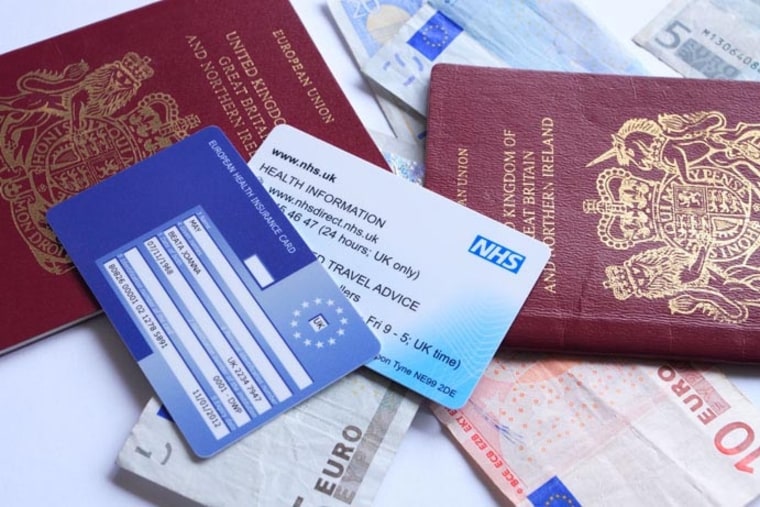You’re going on an exciting adventure abroad, but have you considered what you would do in case of a medical emergency? In this article, we’ll provide you with essential tips and advice on handling medical emergencies while you’re abroad. From understanding travel insurance coverage to finding local medical facilities, we’ve got you covered. So, before you embark on your journey, make sure to read on to ensure a safe and well-prepared trip!
Preparation before Traveling
Before embarking on your travel adventure, it is crucial to prepare for potential medical emergencies. By taking the necessary steps to research and plan ahead, you can ensure that you are well-equipped to handle any health-related situations that may arise during your trip.
Researching Healthcare in the Destination
One of the first steps in preparing for a safe trip is to research the healthcare system in your destination. Familiarize yourself with the availability and quality of medical facilities, as well as the reputation of healthcare providers. This information can be easily obtained through online resources, travel guides, or by contacting the local embassy or consulate.
Health Insurance Coverage Abroad
Having comprehensive health insurance coverage is essential when traveling abroad. Prior to your trip, contact your insurance provider to confirm whether your policy includes coverage for medical expenses incurred overseas. If your current insurance does not provide sufficient coverage, it may be advisable to purchase additional travel insurance. Be sure to carefully review the terms and conditions of your policy to understand the coverage and any limitations.
Vaccinations and Medications
Another important aspect of preparation is ensuring that you have received all necessary vaccinations and are up to date with your regular medications. Check the recommendations of the Center for Disease Control and Prevention (CDC) or consult with a travel medicine specialist to determine the specific vaccinations required for your destination. Additionally, ensure that you have an adequate supply of any prescription medications you regularly take, and carry them in their original containers with clearly labeled instructions.
Emergency Contact Information
In case of an emergency, it is crucial to have important contact information readily available. Make sure to carry a list of emergency contacts, including the local emergency number of the country you are visiting. It is also advisable to have the contact information of your travel insurance provider, healthcare provider back home, and family or friends who can be reached in case of an emergency. Keep this information in a safe and easily accessible place, such as your wallet or the notes section of your phone.
Knowing Common Medical Emergencies
While no one wants to anticipate a medical emergency while traveling, it is important to be aware of common medical conditions and emergencies that can occur. By familiarizing yourself with these situations, you can be better prepared to identify symptoms, take prompt action, and seek appropriate medical assistance when necessary.
Identifying Symptoms and Warning Signs
Being able to identify the symptoms and warning signs of common medical emergencies can be crucial for your health and well-being while traveling. Learn to recognize symptoms such as chest pain, difficulty breathing, severe headache, loss of consciousness, or signs of an allergic reaction. Additionally, be aware of warning signs that may indicate a developing medical emergency, such as persistent fever or worsening symptoms. If you experience any of these symptoms or warning signs, it is important to seek medical assistance immediately.
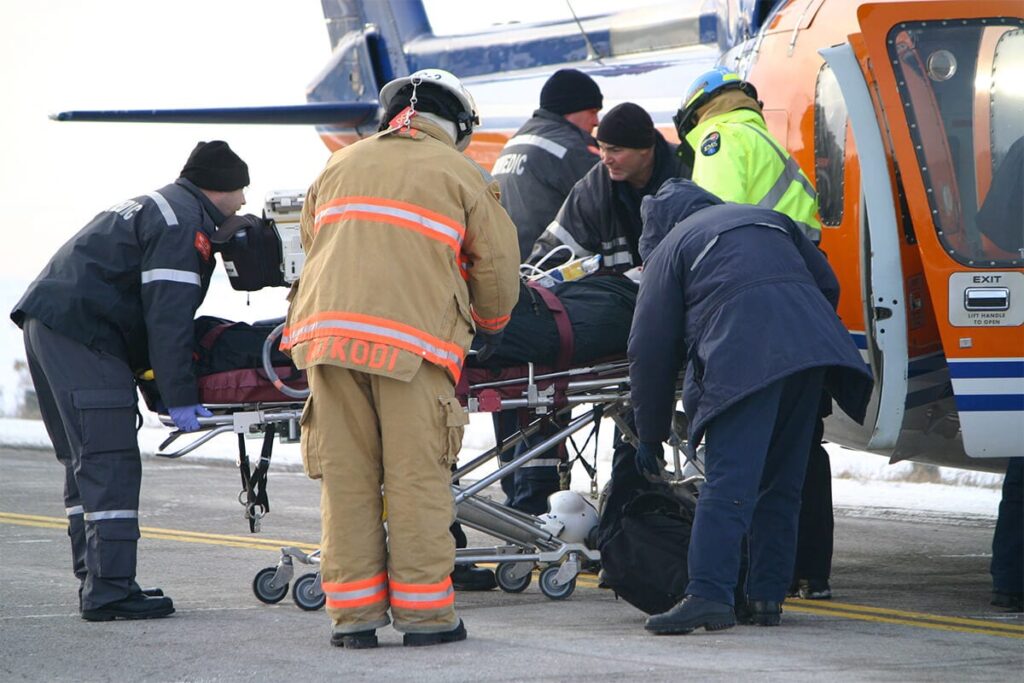
Understanding Local Healthcare System
To effectively handle a medical emergency abroad, understanding the local healthcare system is essential. Research the process of seeking medical care, including the availability of emergency medical services, hospitals, and clinics. Familiarize yourself with how the healthcare system operates in your destination country, including any potential language or cultural barriers that may exist. Knowing where to go and who to contact in case of an emergency can help you navigate the system more efficiently.
Recognizing Cultural Differences
When dealing with a medical emergency in a foreign country, it is important to be aware of and respect cultural differences. Different cultures may have varying attitudes towards healthcare and medical interventions. Familiarize yourself with the cultural practices and customs of your destination to ensure respectful interactions with healthcare providers and locals. Being culturally sensitive can help establish better communication and understanding in times of medical emergency.
Common Language Barriers
Language barriers can pose significant challenges when seeking medical help abroad. It is not uncommon to encounter healthcare providers or staff who do not speak your native language fluently. To overcome language barriers, consider learning basic medical terms in the local language before your trip. This will enable you to effectively communicate your symptoms and medical needs. Additionally, using translation apps or carrying translation cards can be helpful tools in facilitating communication with healthcare providers in emergency situations.
Emergency First Aid
While it is always advisable to seek professional medical help in emergencies, having basic first aid knowledge can be invaluable in providing immediate care until medical assistance arrives. It is highly recommended to undergo a basic first aid training course before your trip. These courses cover a range of essential skills, including wound care, CPR (Cardiopulmonary Resuscitation), and the use of an AED (Automated External Defibrillator).
Basic First Aid Training
Enrolling in a basic first aid training course equips you with the knowledge and skills necessary to provide immediate care in emergency situations. These courses often cover topics like wound care, burns, fractures, and handling bleeding. By familiarizing yourself with these techniques, you can administer critical first aid until professional medical help can be obtained.
Carrying a First Aid Kit
Having a well-stocked first aid kit can be an essential item in your travel bag. Include items such as adhesive bandages, gauze, antiseptic wipes, pain relievers, and any prescribed medications specific to your needs. Additionally, consider carrying items such as a splint, scissors, and a digital thermometer. Having a first aid kit readily available allows you to provide immediate care for minor injuries or ailments while waiting for professional medical assistance.
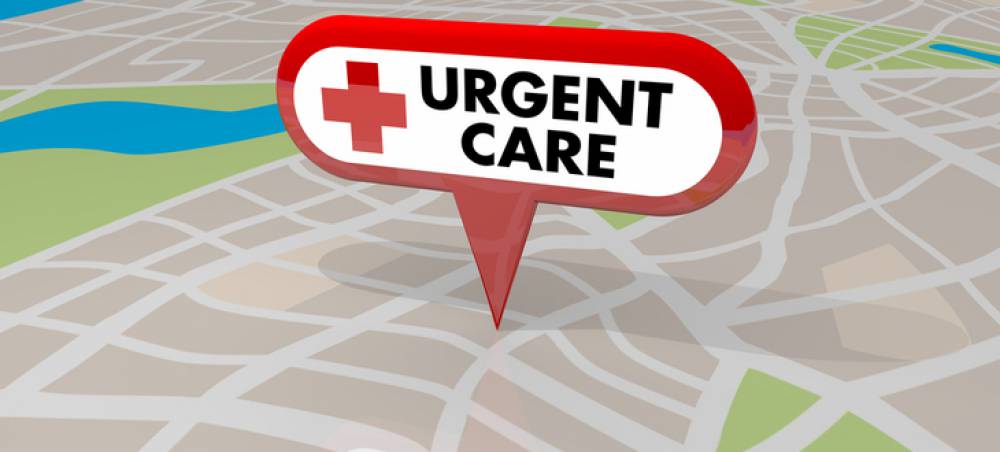
CPR and AED
Cardiopulmonary Resuscitation (CPR) and the use of Automated External Defibrillators (AED) are life-saving techniques that can significantly improve the chances of survival during cardiac emergencies. Consider enrolling in a CPR and AED training course to learn the proper techniques and gain confidence in performing these critical procedures. These skills can be particularly crucial when traveling in remote areas where immediate medical help may not be readily available.
Choking and Heimlich Maneuver
Knowing how to respond and perform the Heimlich maneuver in the case of choking is vital. The Heimlich maneuver is an emergency technique used to dislodge an obstruction in the airway and restore normal breathing. Learning this maneuver through a certified training course or online tutorial videos can help you confidently handle choking emergencies. Being prepared to respond quickly and effectively can make a significant difference in preventing severe complications.
Finding Medical Help
In the event of a medical emergency while traveling, it is crucial to promptly seek appropriate medical help. Knowing how to access assistance and the nearest medical facilities can make a significant difference in addressing the emergency efficiently.
Contacting the Local Emergency Number
The first step in seeking medical help during an emergency is to contact the local emergency number. Research and familiarize yourself with the emergency contact number of the country you are visiting before your trip. Ensure that you have this number readily available in case of an emergency. Calling the local emergency number will connect you to emergency medical services who can dispatch help swiftly to your location.
Seeking Assistance from Bystanders
In some situations, seeking assistance from nearby bystanders can be vital. If you are unable to contact emergency services immediately or require immediate assistance, approach individuals nearby for help. Many people are willing to lend a hand during emergencies, and someone might have the necessary knowledge or resources to provide immediate aid or directions to the nearest medical facility.
Finding the Nearest Hospital or Clinic
Knowing the location of the nearest hospital or clinic is essential for quick access to medical care during an emergency. Before your trip, research and identify the nearest medical facilities in the areas you plan to visit. Save the location and contact information of these facilities on your phone or in a travel document, so you can easily access this information in the event of an emergency.
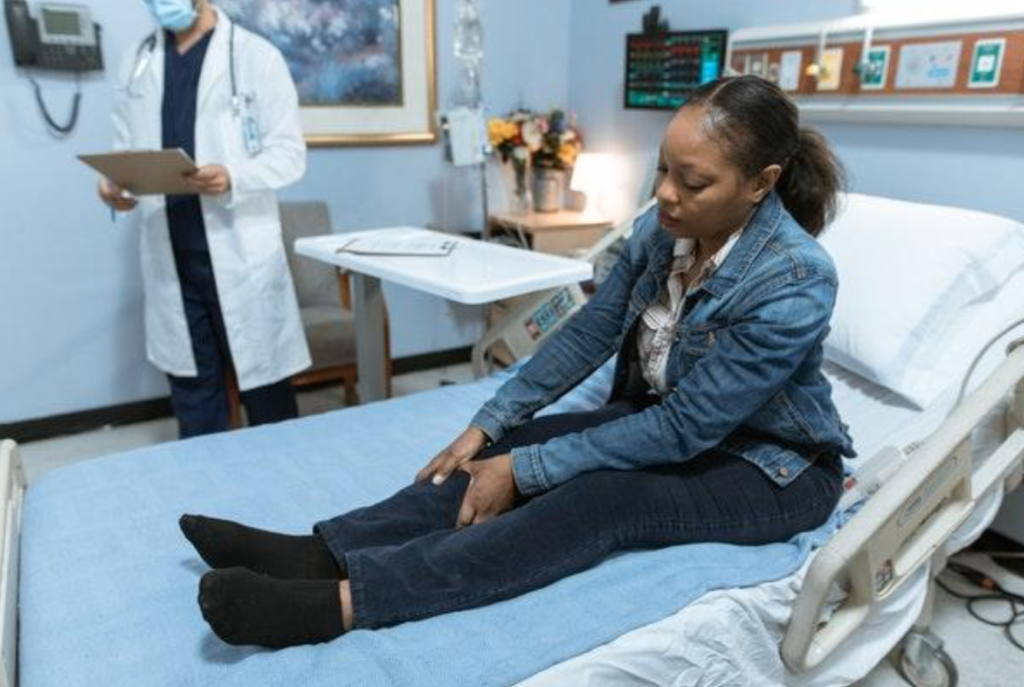
Transportation Options to Medical Facilities
In times of medical emergencies, knowing your transportation options to medical facilities can be crucial for timely access to care. Familiarize yourself with local transportation options, such as taxis, rideshare services, or public transportation, that can efficiently transport you or the injured person to the nearest medical facility. Additionally, consider the availability of emergency medical transportation services or ambulance services in your destination.
Communicating with Healthcare Providers
Clear and effective communication with healthcare providers is essential during a medical emergency abroad. Overcoming language barriers and effectively conveying relevant medical information can play a significant role in receiving appropriate and timely care.
Learning Basic Medical Terms in the Local Language
Learning basic medical terms in the local language can greatly enhance your ability to communicate with healthcare providers during emergencies. Familiarize yourself with words and phrases related to common medical conditions, symptoms, and treatments. This will enable you to describe symptoms accurately and understand the questions or instructions provided by healthcare professionals.
Using Translation Apps or Cards
In situations where language barriers exist, utilizing translation apps or carrying translation cards can be immensely helpful. Translation apps, such as Google Translate or iTranslate, can quickly translate text or even facilitate spoken translations. Translation cards, on the other hand, are pre-printed cards that depict common medical conditions, symptoms, or requests in both the local language and English. These cards can be shown or handed to healthcare providers to aid communication in emergency situations.
Explaining the Emergency Situation Clearly
During a medical emergency, it is crucial to clearly explain the situation to healthcare providers. Provide a concise and accurate account of the symptoms, any events or activities leading up to the emergency, and any relevant medical history or pre-existing conditions. Be prepared to repeat or rephrase your explanation if necessary, ensuring that the healthcare provider fully understands the gravity and urgency of the situation.
Providing Relevant Medical Information
When seeking medical help, it is important to provide healthcare providers with relevant medical information. Carry a summary of your medical history, including any allergies, current medications, and pre-existing conditions. This information can assist healthcare professionals in making the most informed decisions regarding your care. Additionally, provide any documentation or reports from previous medical consultations or treatments that may be pertinent to your emergency situation.
Navigating the Healthcare System
Navigating the healthcare system in a foreign country can be challenging, especially during a medical emergency. Understanding the processes, costs, and necessary documentation can help you better navigate the system and receive the care you need.
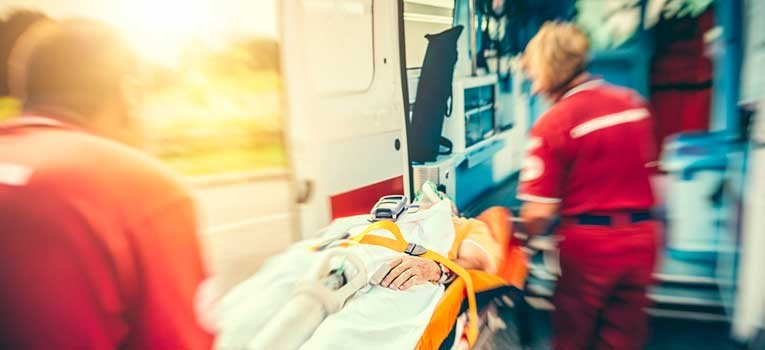
Understanding Medical Costs and Payment Methods
Before seeking medical care abroad, it is important to understand the potential costs and available payment methods. Inquire about payment expectations and accepted forms of payment at healthcare facilities or from your travel insurance provider. Additionally, find out if you need to pay for medical services upfront or if your insurance provider can directly settle the costs with the healthcare facility.
Securing Medical Documentation and Reports
Secure copies of all medical documentation and reports during your time abroad. This includes medical records, test results, treatment summaries, and discharge notes. Retaining these documents can assist with any necessary follow-up care, insurance claims, or reimbursement requests once you return home. Keep physical copies and backup electronic copies to ensure that they are readily accessible.
Requesting Medical Records for Follow-up Care
If you require follow-up care upon your return home, it may be necessary to request your medical records from the healthcare providers you encountered during your trip. Before leaving the country, ask the healthcare facility for copies of your medical records and any necessary documentation for continuity of care. This will ensure that your healthcare provider back home has a comprehensive understanding of your medical emergency and can coordinate appropriate follow-up care.
Dealing with Insurance Claims or Reimbursements
If you have travel insurance, it is important to understand the process of filing insurance claims or seeking reimbursement for medical expenses incurred abroad. Familiarize yourself with the specific requirements and documentation needed to support your claim. Keep records of all medical bills, receipts, and any other relevant documents to facilitate the claims process. Contact your travel insurance provider as soon as possible to initiate the claims process promptly.
Specific Considerations for Travelers with Pre-existing Conditions
If you have a pre-existing medical condition, taking additional precautions and preparing adequately for your trip becomes even more important. Consider the following guidelines to ensure a safe and enjoyable journey.
Carrying Sufficient Medications and Prescriptions
Travel with an ample supply of your necessary medications to last the entire duration of your trip. It is advisable to carry medications in their original packaging, along with a copy of the prescription or a letter from your healthcare provider confirming your need for the medications. Consider dividing the supply of medications between your carry-on and checked luggage to prevent loss in case of baggage mishaps.
Contacting the Home Country’s Healthcare Provider
Before traveling, reach out to your healthcare provider back home to discuss your travel plans and seek their advice. They may have specific recommendations or precautions tailored to your pre-existing condition. Additionally, inform your healthcare provider about your trip in case they need to be contacted for any emergency-related discussions or coordination with healthcare providers abroad.
Discussing Travel Plans with the Treating Doctor
If you are currently receiving treatment or managing a chronic condition, consult with your treating doctor to discuss your travel plans. They can offer guidance on any necessary adjustments to your treatment regimen or provide specific recommendations based on your health status. Their expertise can help you optimize your travel experience while ensuring your health and security.
Knowing the Warning Signs for Exacerbation
Familiarize yourself with the warning signs that indicate a potential exacerbation of your pre-existing condition. Be vigilant and proactive in recognizing any changes or worsening symptoms. Consult local healthcare providers promptly if you experience any concerning symptoms to prevent complications and address the situation promptly.
Dealing with Language and Cultural Barriers
When faced with language and cultural barriers during a medical emergency abroad, there are several strategies you can employ to overcome these challenges and ensure effective communication and care.
Seeking Assistance from Accommodation Staff
If you require immediate assistance due to a medical emergency, consider reaching out to the staff at your accommodation for help. They may be able to provide translation support or contact the appropriate authorities or medical services on your behalf. Accommodation staff often have local knowledge and connections that can be valuable in navigating the local healthcare system.
Contacting Local Embassies or Consulates
Embassies and consulates are resources that can provide valuable assistance during medical emergencies abroad. They can serve as a bridge between you and the local healthcare system, helping to overcome language barriers and offer guidance if you are unfamiliar with the local processes. Contact your country’s embassy or consulate to inform them of the situation and seek their recommendations and support.
Utilizing International Medical Assistance Services
International medical assistance services are organizations that specialize in providing support and guidance to travelers during medical emergencies abroad. These services often have multilingual staff who can communicate with healthcare providers on your behalf. They can assist with coordinating medical care, providing advice, and facilitating necessary arrangements for your situation. Research and consider registering with reputable international medical assistance services before your trip.
Understanding Local Customs and Practices
Being aware of local customs and practices can help you navigate medical emergencies more effectively. Different cultures may have varying approaches to healthcare and medical interventions. By respecting and understanding these cultural differences, you can establish better communication and build rapport with healthcare providers. Additionally, being aware of local practices can help you anticipate certain norms or expectations when seeking medical help.
Preparing for Medical Repatriation or Evacuation
In rare cases, a medical emergency may require medical repatriation or evacuation, which involves transporting an individual back to their home country for further treatment. Understanding the process and taking appropriate steps can ensure a smooth and safe transition.
Understanding the Medical Repatriation Process
Medical repatriation involves arranging safe transportation back to your home country, either by air or ground. This process is typically coordinated by specialized medical transport companies or in consultation with your healthcare provider and travel insurance company. Research the medical repatriation process before your trip, including the companies that specialize in this service, so you are familiar with what to expect in case of a severe medical emergency.
Contacting Travel Insurance for Assistance
If you have travel insurance that includes medical repatriation or evacuation coverage, promptly contact your insurance provider in the event of a severe medical emergency. They will guide you through the necessary steps and coordinate with the relevant parties to arrange the medical transport back to your home country. It is important to understand the specific requirements and limitations of your travel insurance policy regarding medical evacuation or repatriation.
Coordinating with Home Country’s Healthcare Provider
During medical repatriation or evacuation, it is crucial to maintain communication with your healthcare provider back home. Inform them of the situation and enlist their assistance in coordinating your care upon your return. Your home country’s healthcare provider can provide valuable guidance and support for any necessary follow-up care or treatments.
Arranging Necessary Travel Arrangements
In the event of a medical repatriation or evacuation, you may need to arrange travel logistics. This includes working closely with the medical transport company, your travel insurance provider, and healthcare providers both abroad and in your home country. Ensure that you have proper identification documents, passports, and any required medical clearances or recommendations to facilitate the smooth process of returning home for medical care.
Post-Emergency Care and Recovery
Once you have received medical care for a travel-related emergency, it is important to prioritize post-emergency care and focus on your recovery. This includes following medical advice, seeking follow-up care, and addressing any emotional or mental well-being concerns that may have arisen.
Following the Medical Advice and Prescriptions
Adhering to the medical advice and prescriptions provided by healthcare professionals is crucial for a full and safe recovery. This includes taking prescribed medications as instructed, following any recommended restrictions or precautions, and attending scheduled follow-up appointments. If you have any concerns or questions about your medical treatment or recovery, do not hesitate to reach out to your healthcare provider for clarification.
Seeking Follow-up Care upon Returning Home
Upon returning home from a medical emergency abroad, it is essential to seek appropriate follow-up care. Contact your primary healthcare provider or any specialists involved in your care during your trip. Provide them with copies of your medical records and reports obtained abroad and discuss the next steps in your recovery plan. Follow their recommendations for further evaluation, monitoring, or ongoing treatment to ensure a smooth transition to continued care.
Addressing Emotional and Mental Well-being
Experiencing a medical emergency while traveling can be a stressful and emotionally challenging situation. It is important to address any emotional or mental well-being concerns that may arise as a result. Reach out to a healthcare professional or counselor who can provide support and guidance in processing and coping with the experience. Engaging in self-care activities, maintaining a support network, and practicing stress-management techniques can also contribute to your overall well-being during recovery.
Learning from the Experience for Future Travel
Every travel experience, including encountering a medical emergency, can be an opportunity for learning and growth. Reflect on your experience and identify any areas where you could have been better prepared or taken different actions. Consider the steps that made a positive difference and those that could be improved upon. Incorporate these lessons into your future travel plans to enhance your preparedness and minimize potential risks.
In conclusion, while dealing with medical emergencies abroad can be a stressful experience, being prepared and informed can significantly mitigate potential risks. By undertaking thorough research, acquiring essential knowledge and skills, and following the recommended guidelines, you can navigate medical emergencies more confidently and ensure your health and well-being while traveling. Stay proactive, communicate effectively, and prioritize your recovery to ensure a safe and memorable travel experience.

